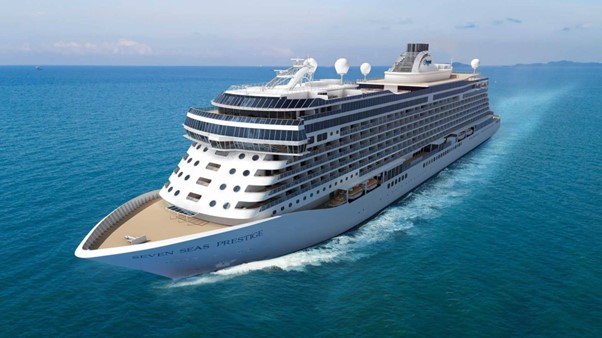Airlines are increasingly taking on greater responsibility to decrease carbon emissions and order electric planes to operate on domestic or short-haul flights.
Air Canada announced Thursday that it had bought 30 ES-30 electric aircraft from Heart Aerospace. In all-electric mode, the plane can go 124 miles, and in range-limited mode, it can travel 500 miles.
United Airlines and Mesa Airlines have placed firm orders with the Swedish manufacturer.
Since announcing last Thursday that it has bought 30 of Heart Aerospace’s ES-30 electric aircraft, Air Canada has taken a significant step towards being a greener company. Canada’s national airline has invested $5 million in the Swedish manufacturer in exchange for equity.
The plane is expected to enter service in 2028 with seating for 30 people (2×10) and a range of up to 124 miles (200 km) in all-electric mode.
Air Canada claims a maximum range of 497 miles with a passenger capacity of 25 and 249 miles when generators augment the battery.
To combat climate change, “Air Canada has taken a leadership role in the industry,” CEO Michael Rousseau said in a statement. With the addition of Heart Aerospace’s ES-30 electric regional aircraft, we will progress towards our nett zero emissions target by 2050.
This action will aid Air Canada’s ongoing decarbonization initiatives. Rousseau claims that in order to lower its carbon footprint, the airline is working on carbon capture technology and an eco-friendlier form of aviation fuel.
In April, Air Canada used sustainable aviation fuel from oil-refining business Neste to power four flights between San Francisco and its Canadian hubs in Toronto, Vancouver, Calgary, and Montreal.
Other North American airlines to confirm an order for Heart Aerospace’s electric jet are; Air Canada. United Airlines and its regional partner Mesa Airlines will order 200 ES-19s (the 19-seater variant) in July 2021. It will likely enter service two years before the ES-30, in 2026.
Other airlines are also considering Heart Aerospace. Sounds Air of New Zealand has committed to having “at least three” ES-19s by the year 2026.
At the same time as global airlines and aviation regulators are aiming for net-zero emissions by 2050, there has been a resurgence of interest in electric planes.
Source: Link
 Taking on the Tasman: Air New Zealand Unleashes 1.7 Million Seats for Summer
Taking on the Tasman: Air New Zealand Unleashes 1.7 Million Seats for Summer  Oman Air Elevates In-Flight Dining with Exquisite Omani Rock Rose Dessert
Oman Air Elevates In-Flight Dining with Exquisite Omani Rock Rose Dessert  Cathay Pacific Elevates Inflight Dining with ‘Chinese Classics’ Menu
Cathay Pacific Elevates Inflight Dining with ‘Chinese Classics’ Menu  Hong Kong Airlines Set to Land in Sydney—And Travellers Reap the Rewards
Hong Kong Airlines Set to Land in Sydney—And Travellers Reap the Rewards  Lufthansa Unveils Newly Designed First Class Lounge in Munich
Lufthansa Unveils Newly Designed First Class Lounge in Munich  Etihad Expands Fleet with 28 Boeing Aircraft, Strengthening Global Growth Strategy
Etihad Expands Fleet with 28 Boeing Aircraft, Strengthening Global Growth Strategy  Silversea’s 2026 Venetian Society Reunion Voyage: A Celebration of Italy’s Finest
Silversea’s 2026 Venetian Society Reunion Voyage: A Celebration of Italy’s Finest  Regent Unveils World’s Largest Ultra-Luxury Cruise Suite: The Skyview Regent Suite
Regent Unveils World’s Largest Ultra-Luxury Cruise Suite: The Skyview Regent Suite  MSC World Asia: A New Wave of Excitement Hits the Mediterranean in 2026
MSC World Asia: A New Wave of Excitement Hits the Mediterranean in 2026  Oceania Cruises Taps Top Chefs as Godparents of Newest Ship Allura
Oceania Cruises Taps Top Chefs as Godparents of Newest Ship Allura 